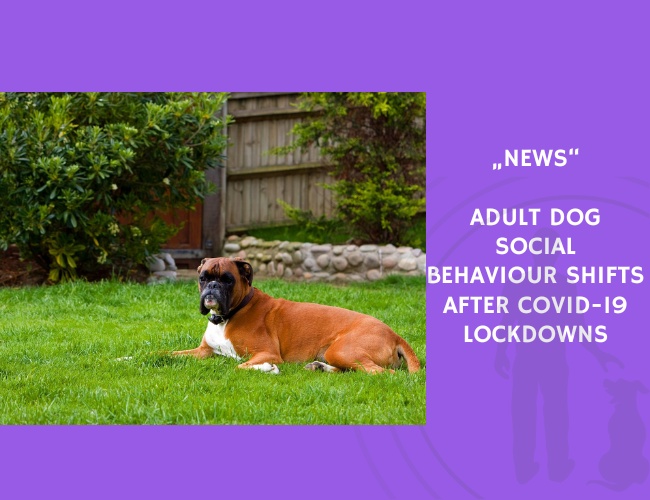The COVID-19 pandemic not only disrupted human lives but also altered the daily routines and behaviours of companion animals. Boardman and Farnworth (2022) conducted a qualitative study to understand the perceived impact of lockdowns on adult dog social behaviour from the perspective of their owners.
Fifteen owners of eighteen dogs aged between 3 and 6 years were interviewed in England between December 2021 and January 2022. Thematic analysis of these interviews revealed that while many owners viewed lockdown as a positive bonding period, behavioural challenges emerged when restrictions were lifted.
Key findings included:
- During lockdown, dogs benefited from increased companionship and showed reduced separation-related behaviours.
- After restrictions eased, many dogs displayed fear-related behaviours and increased aggression, particularly towards unfamiliar people or environments.
- Changes in walk frequency and exposure to new environments created challenges in readapting to pre-lockdown routines.
- Owners noted difficulties in managing overexcitement and stress, suggesting that post-lockdown transitions negatively impacted canine social stability.
The authors caution that unmanaged fear or aggression poses risks to both human and animal welfare. They recommend that veterinarians and behaviour professionals provide guidance on desensitisation, counterconditioning, and other positive training methods to help dogs adjust. These findings also highlight broader implications for dog behaviour in response to major life changes such as retirement, job shifts, or relocation.
Source: Boardman, H., & Farnworth, M. (2022). Changes to Adult Dog Social Behaviour during and after COVID-19 Lockdowns in England: A Qualitative Analysis of Owner Perception. Animals, 12. Authors: H. Boardman, M. Farnworth. Journal: Animals.










